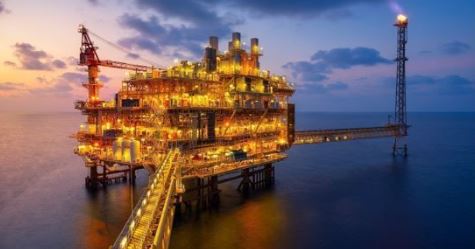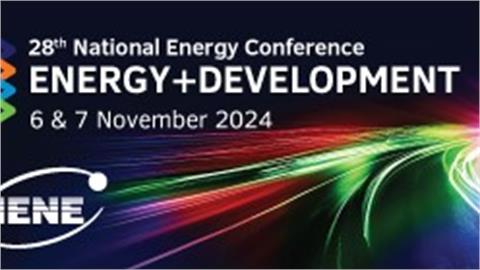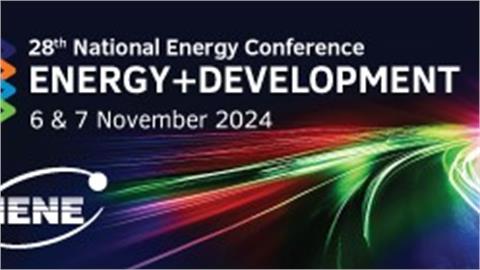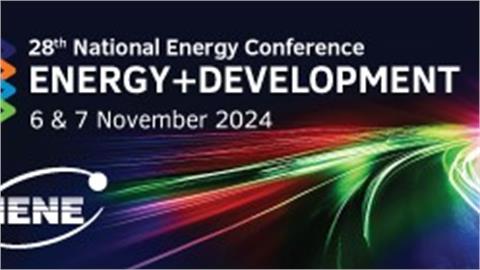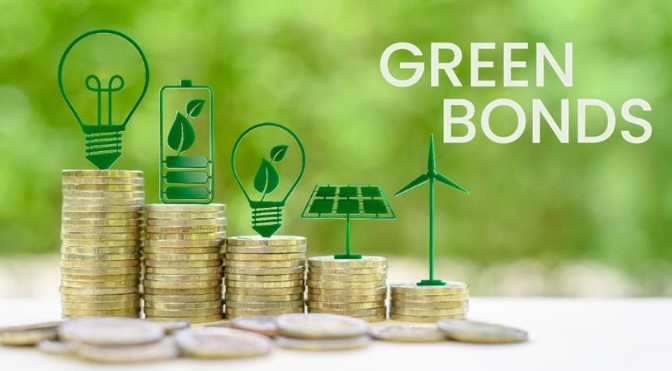Hydrocarbons will continue to be a key component of the energy mix at global and European level, including Greece, for several years to come, according to a Special Report prepared by IENE on the “Economic and Geopolitical Benefits of Hydrocarbon Exploitation in Greece”, which was released and presented at an online press conference on Monday, April 18.
Hydrocarbons will continue to be a key component of the energy mix at global and European level, including Greece, for several years to come, according to a Special Report prepared by IENE on the “Economic and Geopolitical Benefits of Hydrocarbon Exploitation in Greece”, which was released and presented at an online press conference on Monday, April 18.
The Report highlights the significant potential of Greece for the development of its hydrocarbon sector and for targeted research by the companies concerned, with the goal of discovering and exploiting oil and natural gas deposits. As it is underlined, the need to leverage this potential is particularly intense today, given the observed shortage of energy supply - especially natural gas – due to the current price crisis and the geopolitical instability that has arisen because of the war in Ukraine.
In order to substantially reduce the current high dependence on energy imports there is a need to increase production from indigenous energy resources, the report notes. This cannot only concern RES, as RES-produced energy is mainly channeled to electricity, but all domestic sources, including solid fuels and hydrocarbons. As the report underlines, the objective of lower energy dependence is combined with the effort to boost the economy and strengthen the country's geopolitical position. According to the data contained in the Report, there are specific geological targets that have already been identified through the processing of research data which has resulted from seismic surveys to date.
The main conclusions of the Report
After a thorough review of both the exploration and production experience in Greece so far and in view of the country's energy needs, the IENE Report draws a number of useful conclusions:
- Despite the longstanding efforts of the Greek State and by the consortia of Greek and foreign concessionaires, the Greek hydrocarbon industry, apart from the activity at Prinos, has not managed to develop to date.
- The licensing procedure for granting exclusive rights for exploration and production areas has been and remains highly bureaucratic and time-consuming.
- Both the investment risk and the high research costs are not in the slightest borne by the state budget, but exclusively by the contracting consortia.
- The size and economic value of potential hydrocarbon reserves cannot be determined with precision, due to currently incomplete research data. However, on the basis of existing seismic research and analysis, it is estimated that gas reserves are in the order of 2.0-2.5 trillion cubic meters.
- At technical level, there is a need for a supplementary denser seismic network (two and three dimensions) as well as for accelerated elaboration of additional geological studies.
- The presence of energy groups, such as the TotalEnergies and the ExxonMobil, Hellenic Petroleum and Energean, as well as the expressed interest by other major companies, enhance the prospect of having very significant hydrocarbon reserves, especially in the Ionian Sea region and in the west and southwest of Crete.
- The presence of the TAP pipeline, which is already in operation, the Greece-Bulgaria (IGB) interconnector, which is under construction, the planned EastMed and the four new FSRUs (two in Alexandroupolis, one in Agioi Theodoroi of Corinth and one in Volos), reinforce the geopolitical and geostrategic value of Greece and the wider Balkan and Southeast European region.
- The gradual weakening of the coronavirus pandemic will lead to an increase in demand and higher production of hydrocarbons. As long as supply remains low, energy costs related to hydrocarbons will remain high.
- At the same time, it is becoming increasingly clear that in a complex and unstable geopolitical environment, the pursuit of energy self-sufficiency will be reaffirmed as a key objective of energy strategies pursued by EU countries and beyond. Therefore, it is necessary for the State to provide the necessary guarantees for the rapid approval of the required permits, in accordance with current legislation, in order to expedite hydrocarbon exploration work.
- Greece must and can transform from being an exporter of petroleum products and an importer of crude and natural gas to a producer of hydrocarbons and an exporter of natural gas. Such an outlook creates business opportunities by attracting much needed private investment, the creation of new jobs, the reduction of overall energy costs, the increase of energy security while helping to achieve diversification of supply, and the revitalizing of a highly indebted economy. At the same time increased hydrocarbon activity may enhance the country’s geopolitical and geostrategic importance.
- Gaseous hydrocarbons provide an important bridge of green energy transition with the ultimate goal of achieving lower pollutant/carbon emissions. They can and should complement Renewable Energy Sources. Part of their revenues can and should be invested in green technologies (hydrogen, carbon capture-storage, development of natural gas storage). Hence, identifying and exploiting domestic hydrocarbon reserves, in particular gaseous hydrocarbons, is imperative.
The IENE proposals
As IENE points out, hydrocarbon research requires high investment, modern technology, systematic work with a clear focus, but also requires patience and perseverance. To this end, the IENE Report concludes with the following concrete proposals:
- The State and the government should demonstrate a clear commitment and, as far as possible, a cross-party willingness to support the exploration and production of hydrocarbons in Greece, without preset conditions for their economic exploitation.
- The government should encourage concessionaires to expedite their research activities and submit a revised timetable with clear targets for exploratory drilling.
- Bureaucratic obstacles and unnecessary red tape in the licensing process for surveys and the approval of Environmental Impact Studies (EIA) must be removed.
- An international tender for new areas of technical interest to be launched as soon as possible, e.g. Such areas could include the Thermaikos Gulf and the Nestos – Strymonikos area, as well as an open door tender for all returned areas to the Greek state.
- Efforts must be made on a continuous basis in order to attract major international oil companies with the objective of them submitting expressions of interest for land and sea areas, process the submitted applications and immediately launch an international tender in accordance with the current legislation.
- The potential of hydrocarbon deposits to be taken into consideration in the EEZ definition process (e.g. first step with the award of Block 1 on the border with Albania to Hellenic Petroleum – potential interest for Rhodes, Kastelorizo, Cyprus, Crete).
- The country's hydrocarbon potential should be promoted internationally in a continuous and systematic way through organized campaigns to be undertaken by HHRM.
- Create a national energy and geopolitical 10-year plan, with a special focus on the Eastern Mediterranean region.
